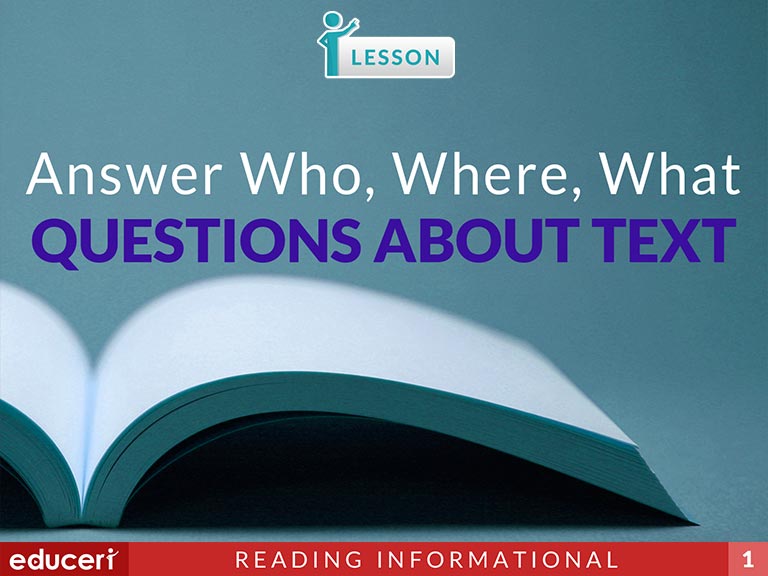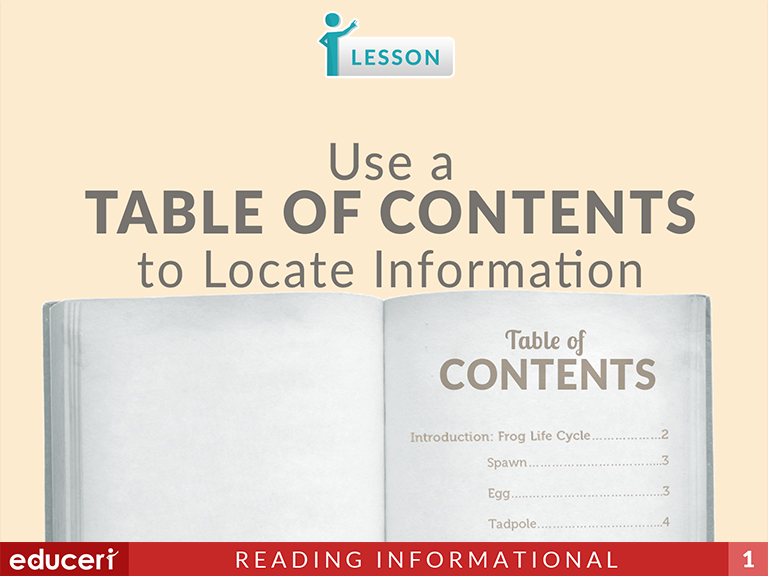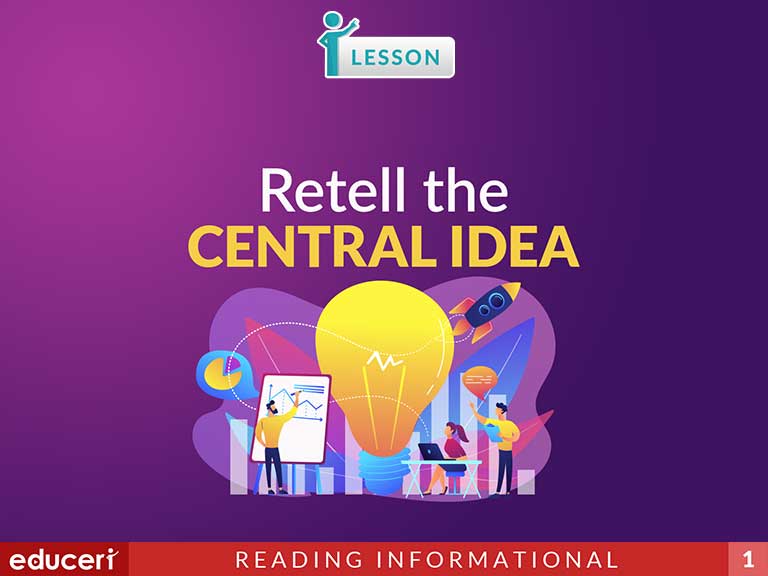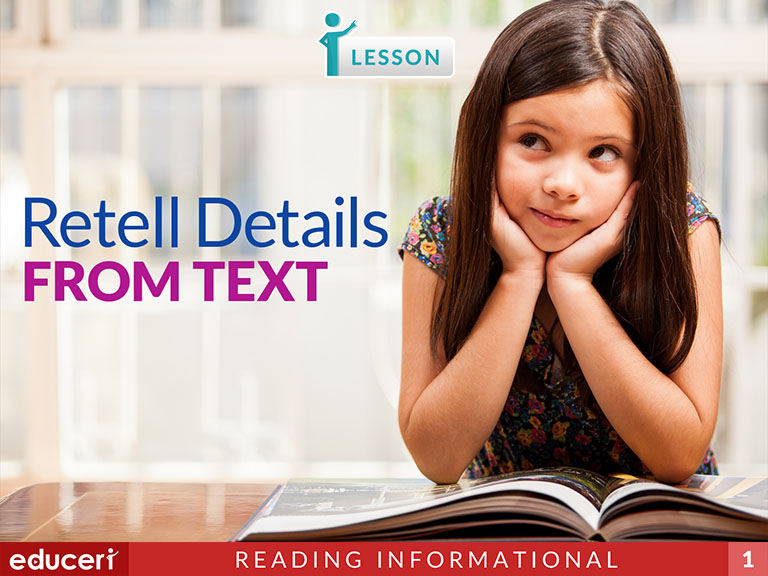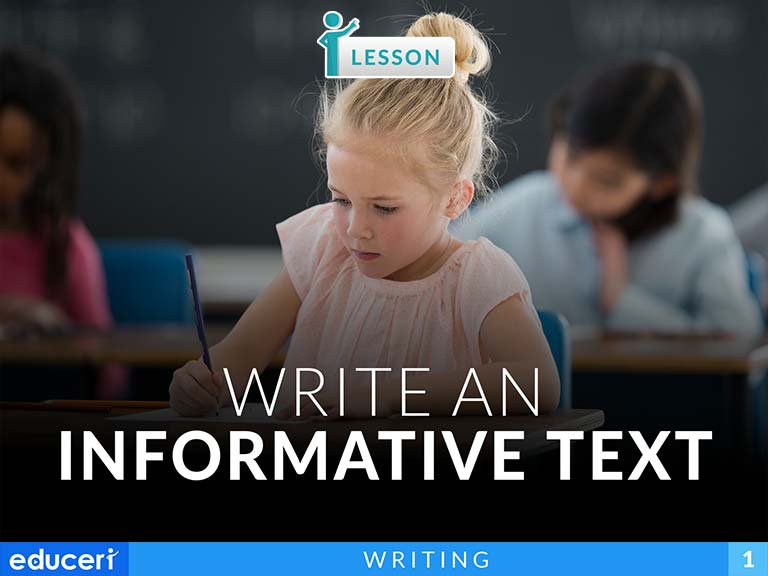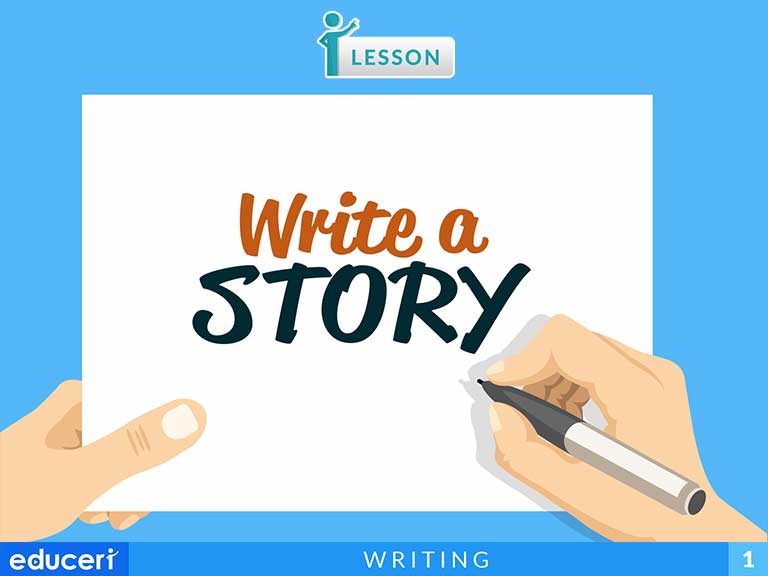All Lessons
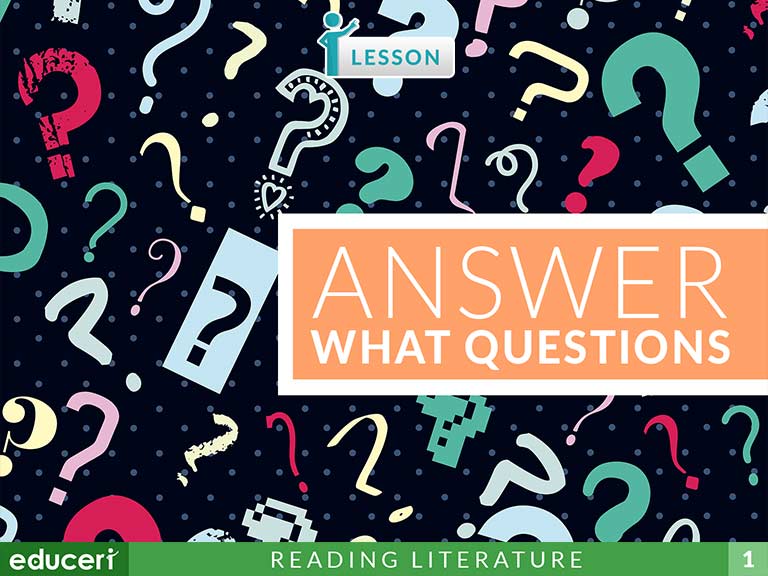
Answer What Questions
This reading comprehension lesson focuses on answering "what" questions. The lesson includes research-based strategies and questions that help prepare students for assessments. In this lesson, students are asked to answer questions about details or actions after reading text . In addition to the lesson, there are eight pages of Independent Practice and review with questions modeled after current adaptive testing items.
Share This Lesson
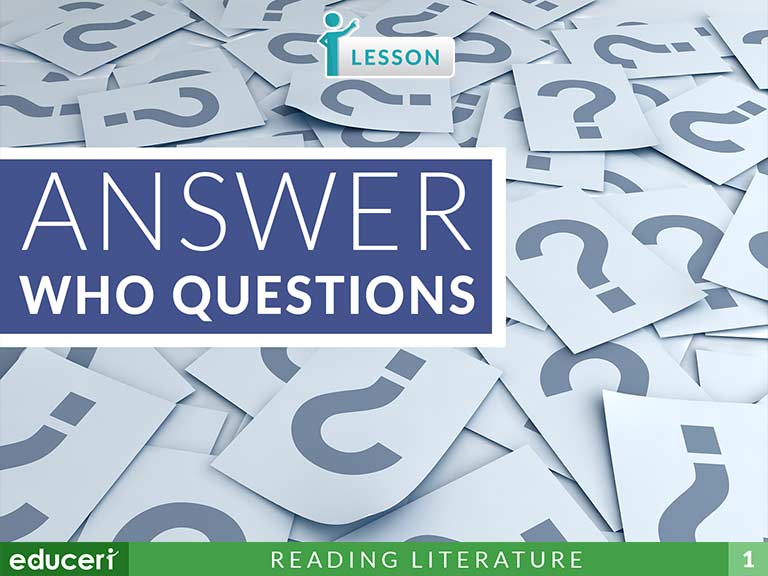
Answer Who Questions
This reading comprehension lesson focuses on answering "who" questions. The lesson includes research-based strategies and questions that help prepare students for assessments. In this lesson, students are asked to answer questions about people or animals after reading text . In addition to the lesson, there are nine pages of Independent Practice and review with questions modeled after current adaptive testing items.
Share This Lesson
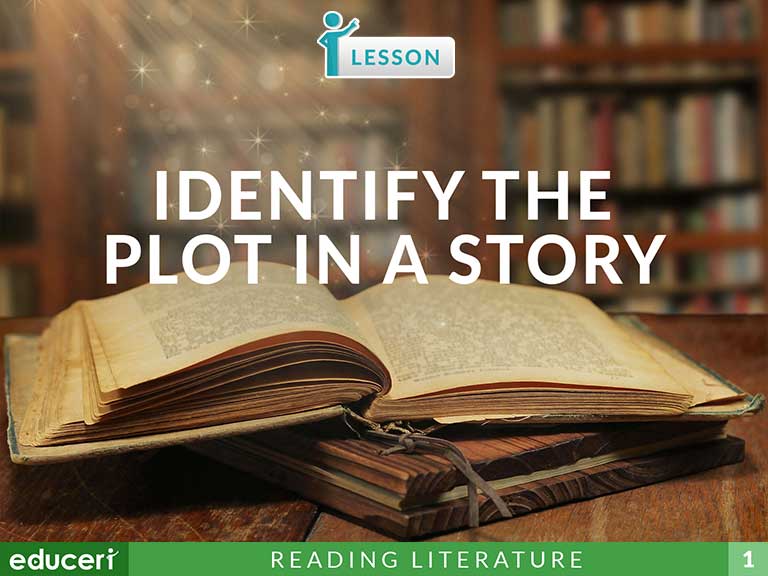
Identify the Plot in a Story
This literary response and analysis lesson focuses on identifying the plot in a story. The lesson includes research-based strategies and strategic questions that prepare students for assessments. In this lesson, students identify the problem and solution (events) within a passage to better understand the plot. In addition to the lesson, there are four pages of Independent Practice and review with questions modeled after current adaptive testing items.
Share This Lesson
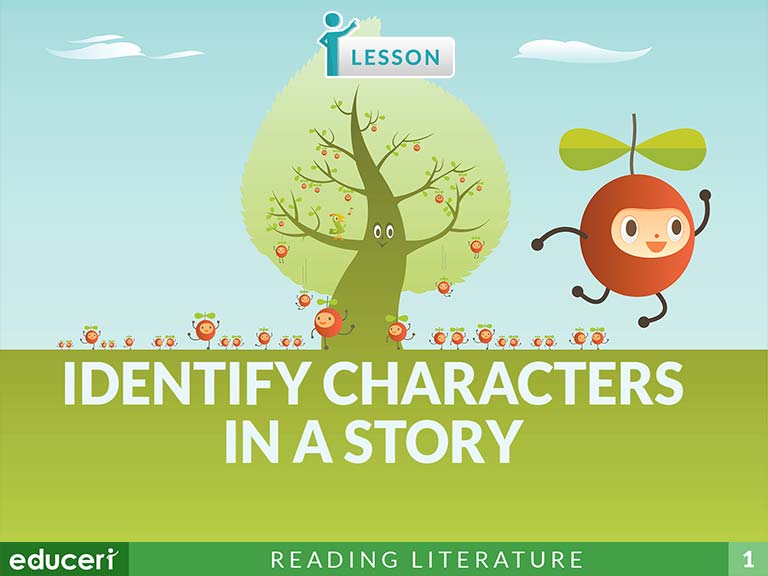
Identify Characters in a Story
This literary response and analysis lesson focuses on identifying characters. The lesson includes research-based strategies and strategic questions that prepare students for assessments. In this lesson, students read the story and think about who talks or does something in order to identify character(s). In addition to the lesson, there are four pages of Independent Practice and review with questions modeled after current adaptive testing items.
Share This Lesson
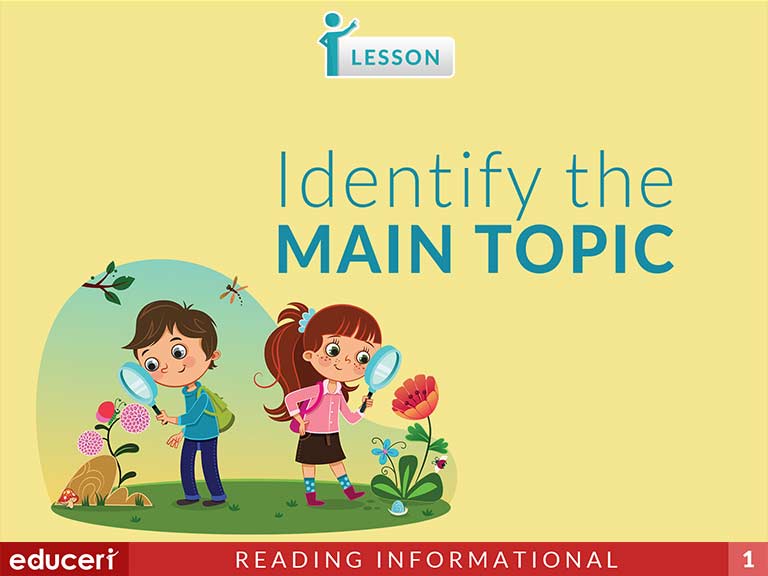
Identify the Main Topic
This reading comprehension lesson includes research-based strategies and strategic questions that prepare students for assessments. In this lesson, with prompting and support, students will identify the main topic and retell key details of a text.
Share This Lesson
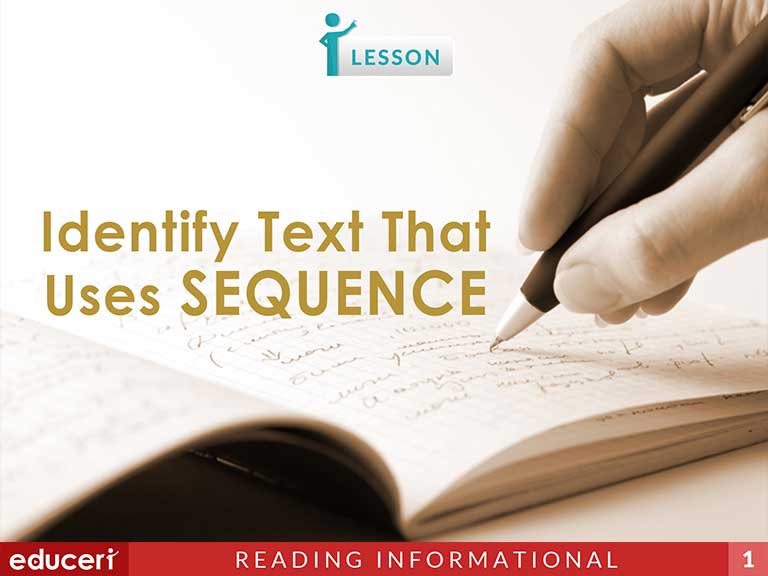
Identify Text That Uses Sequence
This reading comprehension lesson focuses on identifying text that uses sequential order. The lesson includes research-based strategies and strategic questions that prepare students for assessments. In this lesson, students look for clue words that identify sequence (first, last, then, next), and then circle yes or no if the sentence uses sequence. In addition to the lesson, there are four pages of Independent Practice and review with questions modeled after current adaptive testing items.
Share This Lesson
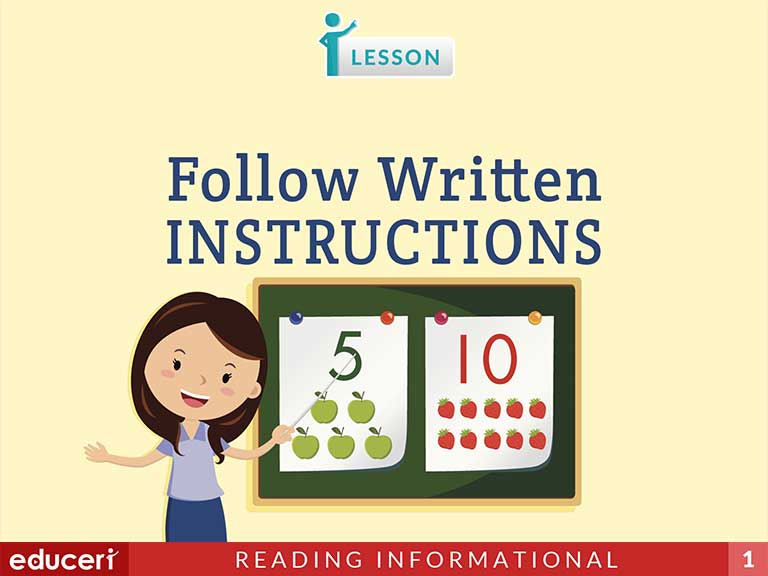
Follow Written Instructions
This reading comprehension lesson focuses on following one-step written instructions. The lesson includes research-based strategies and questions that help prepare students for assessments. The lesson has students practicing doing what the text tells them to do. In addition to the lesson, there are four pages of Independent Practice and review with questions modeled after current adaptive testing items.
Share This Lesson
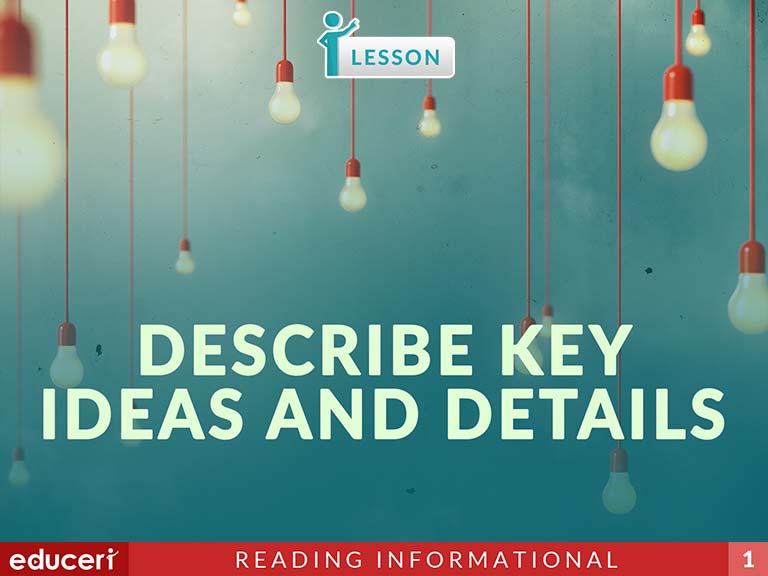
Describe Key Ideas and Details
This Reading Informational Text lesson has students identify the key idea in the text and describe the details that support it. The lesson includes research-based strategies and strategic questions that prepare students for assessments.
Share This Lesson
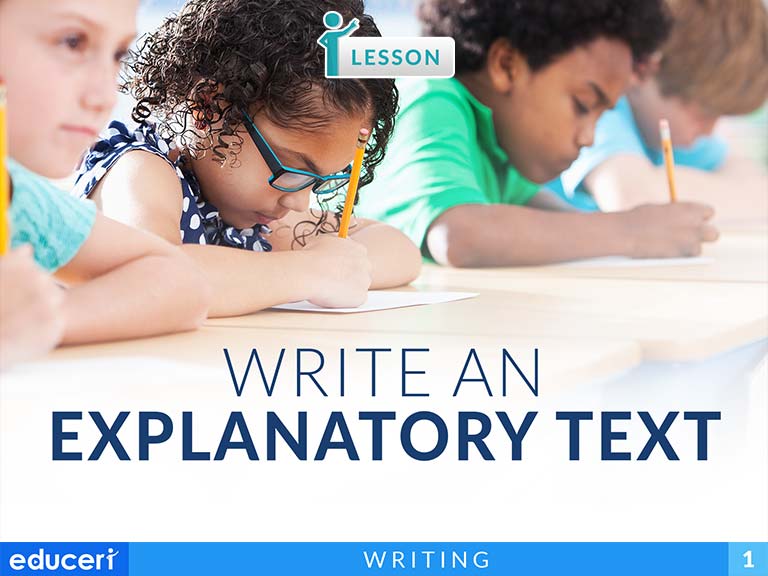
Write an Explanatory Text
This writing lesson covers how to write explanatory text. The lesson includes research-based strategies and strategic questions that prepare students for assessments. In this lesson, students write sentences that describe each of several steps. Then, they use an editing checklist to identify and correct any errors. In addition to the lesson, there are four pages of topics for review and extended thinking.
Share This Lesson
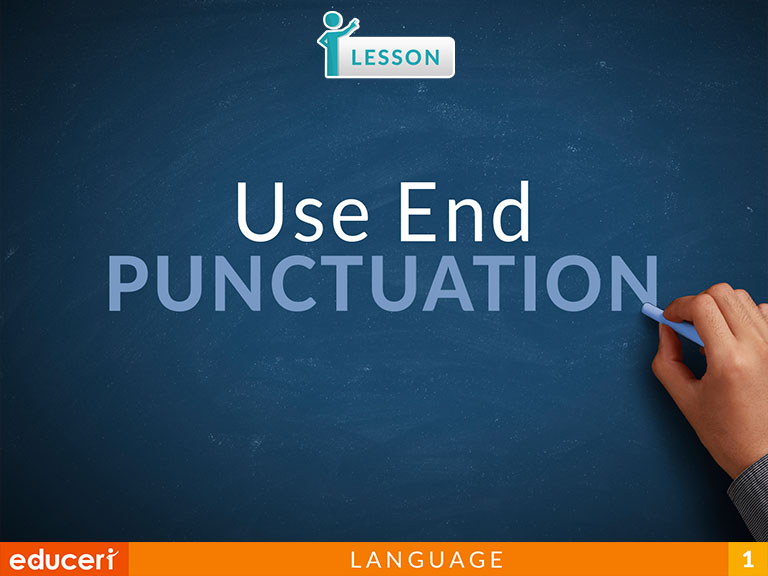
Share This Lesson
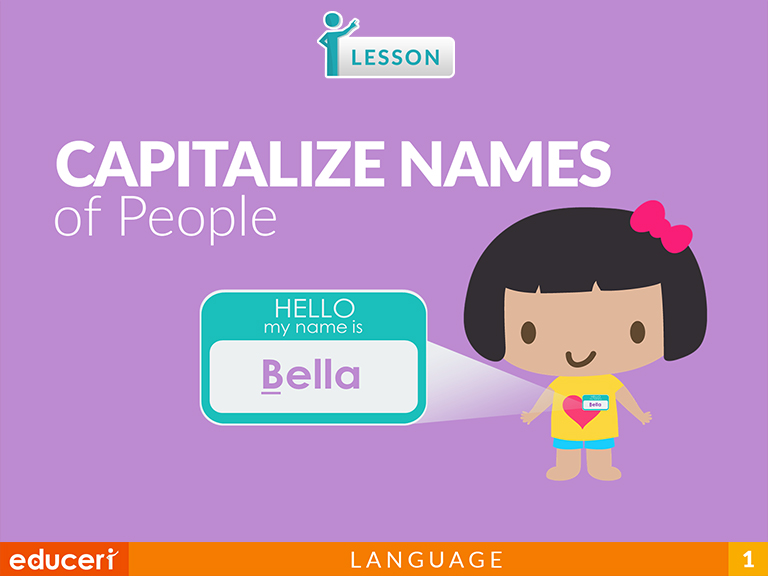
Capitalize Names of People
This writing conventions lesson focuses on capitalizing names of people. The lesson includes research-based strategies and questions that help prepare students for assessments. This lesson practices using uppercase letters as a rule when writing people's names. In addition to the lesson, there are four pages of Independent Practice and review with questions modeled after current adaptive testing items.
Share This Lesson
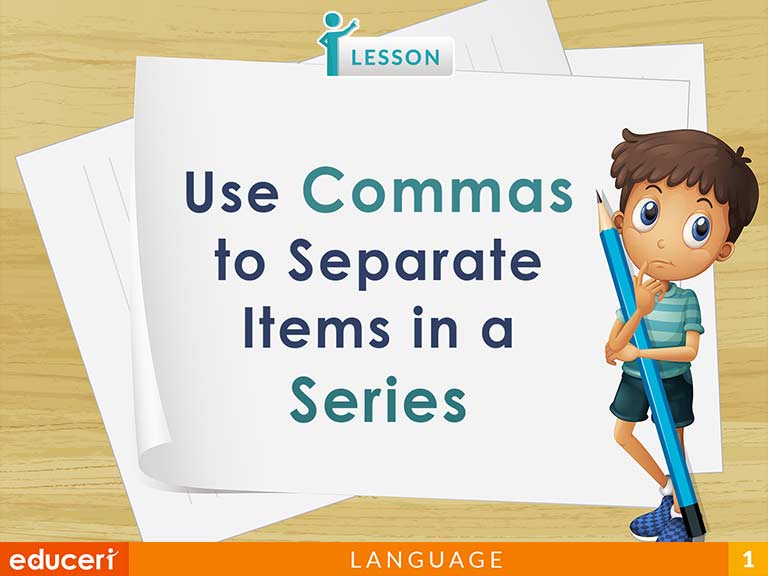
Use Commas to Separate Items in a Series
This writing conventions lesson focuses on using commas to separate items in a series. The lesson includes research-based strategies and strategic questions that prepare students for assessments. In this lesson, students identify a series of items in a sentence and insert commas. In addition to the lesson, there are four pages of Independent Practice and review with questions modeled after current adaptive testing items.
Share This Lesson
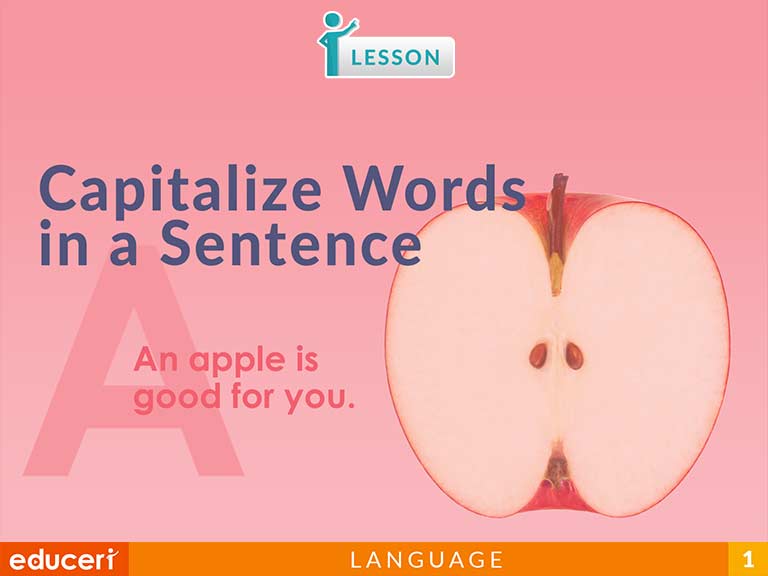
Capitalize Words in a Sentence
This writing conventions lesson focuses on capitalizing words in a sentence. The lesson includes research-based strategies and strategic questions that prepare students for assessments. In this lesson, students identify proper nouns, months and days of the year, and the first word of a sentence to capitalize. In addition to the lesson, there are four pages of Independent Practice and review with questions modeled after current adaptive testing items.
Share This Lesson
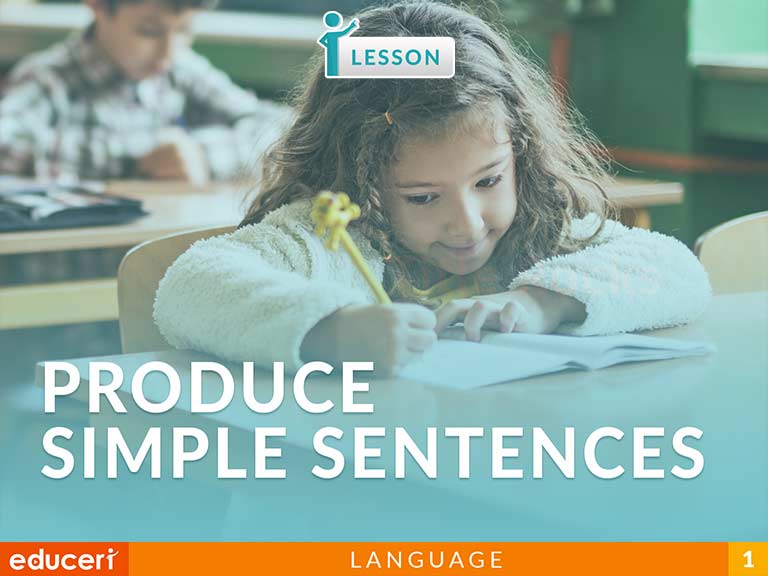
Produce Simple Sentences
This Language lesson requires students to identify and produce simple sentences on given topics. The lesson includes research-based strategies and strategic questions that prepare students for assessments.
